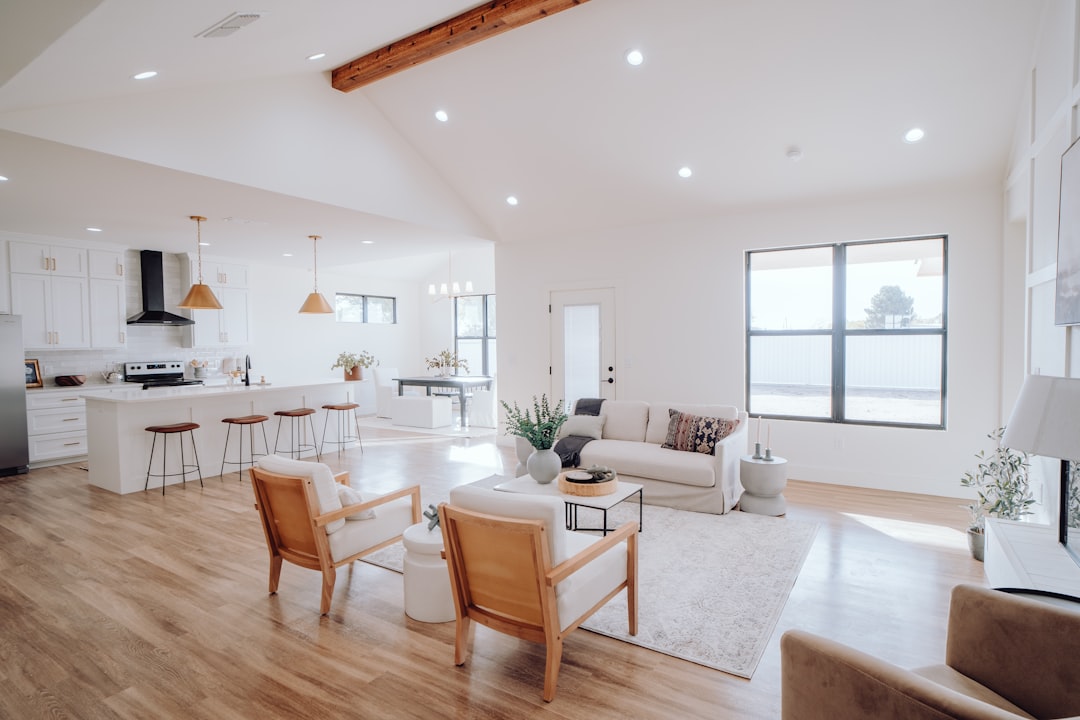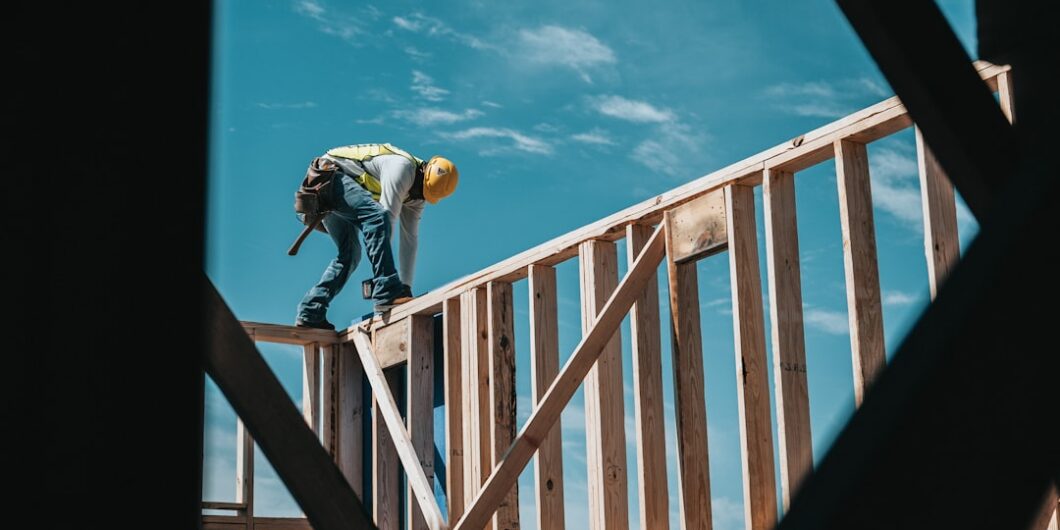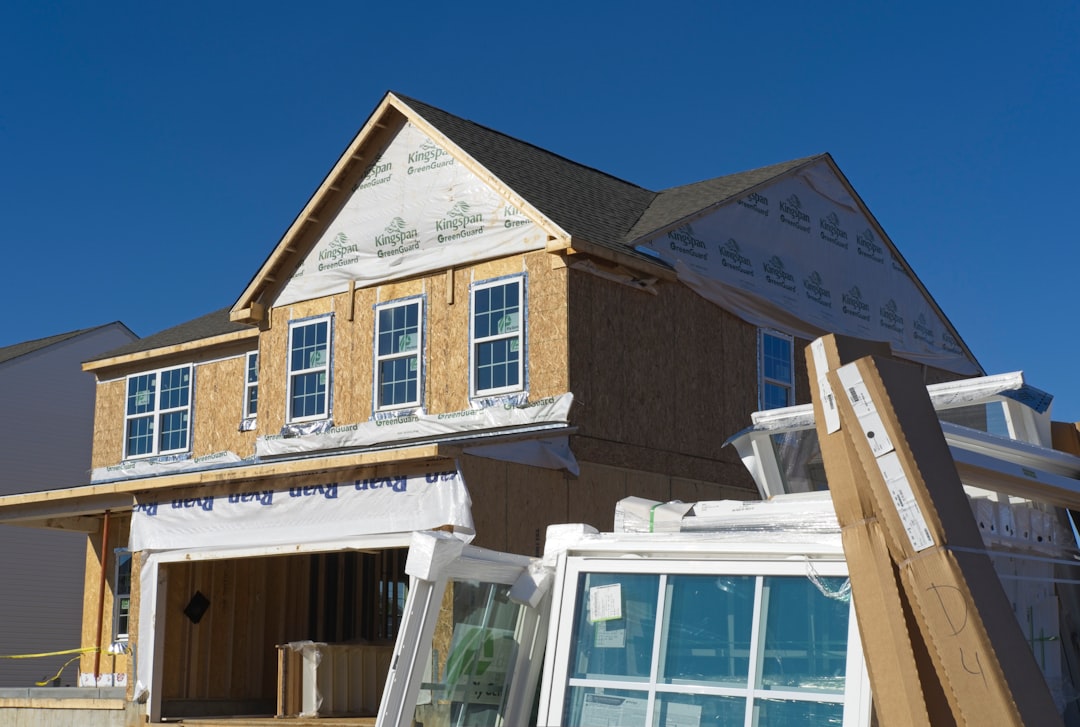Tag Archives for " Harmony Real Estate "

When it comes to buying a home, there’s one thing many people forget to factor into their plans, property taxes. Understanding how taxes vary by town can help you make smarter decisions and avoid surprises down the road.
Property taxes can have a big impact on your monthly payments, your long-term costs, and even your home search strategy. In Southern New Hampshire, every town sets its own tax rate, and those differences can really add up.
Whether you’re exploring Southern NH houses for sale or comparing communities for your next move, knowing how each town’s taxes affect your budget will help you stay informed and confident as a buyer. Let’s break it all down in simple terms.
Property taxes aren’t just another line on your mortgage statement. They’re an ongoing cost of homeownership. These taxes help fund local services like schools, police and fire departments, libraries, and road maintenance.
When you understand how taxes vary by town, you can see why some areas cost more than others. A town with top-rated schools and well maintained parks may have higher tax rates to support those services. Meanwhile, smaller towns with fewer services might have lower rates but may not offer as many amenities.
The key is balance. You want a community that fits both your lifestyle and your budget.
Before diving into how different towns compare, it helps to understand how the math works. Property taxes are based on two main things:
The assessed value of your home – what the town believes your property is worth.
The local tax rate – how much the town charges per $1,000 of assessed value.
For example, if your home is assessed at $400,000 and the town’s tax rate is $20 per $1,000, your annual property tax would be $8,000. So even if two homes cost the same, your yearly costs could differ depending on how taxes vary by town.

Now let’s look at what this means in real life. Southern New Hampshire includes a mix of cities, suburbs, and small towns—all with different tax rates and services.
In general:
Cities like Nashua or Manchester tend to have higher tax rates because they offer more public services and larger school systems.
Towns like Windham, Bedford, or Hollis often have higher home values but lower tax rates, which balance out the total bill.
Smaller towns like Brookline or Lyndeborough may offer lower rates but fewer public amenities.
This is why it’s important to research each area before deciding where to buy. When looking at Southern NH houses for sale, take a few minutes to compare tax rates. It could affect your monthly budget more than you expect.
Tax rates aren’t set in stone. They can shift from one year to the next based on town budgets, property assessments, and local spending decisions.
Here are a few common reasons rates change:
Town budgets increase. If a town needs more money for schools, roads, or emergency services, rates can go up.
Property values rise. When property values increase across a town, the rate may go down—but you might still pay more overall because your assessment is higher.
New development. Growth can sometimes lower taxes, as new businesses or homes expand the tax base.
This is why it’s smart to keep an eye on how taxes vary by town each year, especially if you’re budgeting for long-term costs.

When you take out a mortgage, your property taxes are usually included in your monthly payment through an escrow account.
That means if your town’s taxes increase, your monthly payment could go up even if your mortgage rate stays the same.
For example, let’s say you find a home among Southern NH houses for sale that fits your $2,500 monthly budget. If that includes property taxes, and those taxes rise by $1,200 a year, your new payment could increase by $100 per month. That’s why understanding how taxes vary by town can help you plan ahead and avoid being caught off guard.
Let’s say you’re deciding between two homes—one in Londonderry and one in Hudson.
Londonderry: Tax rate of about $18 per $1,000 of assessed value.
Hudson: Tax rate of about $24 per $1,000 of assessed value.
If both homes are valued at $450,000, here’s how the math plays out:
Londonderry taxes: $8,100 per year
Hudson taxes: $10,800 per year
That’s a difference of $2,700 annually, or about $225 per month—just based on how taxes vary by town. These are rough examples, but they show how much impact local taxes can have on your budget.
It’s easy to think that lower taxes are always better but that’s not always true.
Towns with higher tax rates often use that money for better services, schools, and infrastructure. If you have kids, a strong school system might be worth the added cost. You might also enjoy extras like better maintained parks, community programs, or faster emergency response times.
When you look at Southern NH houses for sale, think about how each town’s services fit your lifestyle. A slightly higher tax bill could bring better long-term value and quality of life.
On the other hand, lower taxes can make a home more affordable month to month. If you’re a first-time buyer or on a tighter budget, that can be a big advantage.
However, lower taxes sometimes mean fewer town services. You might need to hire private trash pickup, pay for a recreation membership, or travel farther for certain amenities.
Again, this is why knowing how taxes vary by town helps you balance cost and convenience. It’s about finding what matters most to you and your family.

When you start browsing Southern NH houses for sale, keep a few smart strategies in mind:
Check tax rates early. Don’t wait until closing to find out how much you’ll owe each year.
Ask your REALTOR® for comparisons. Local agents know which towns have higher or lower taxes and why.
Look beyond the number. Sometimes a higher rate supports strong schools or great community resources.
Consider your full budget. Add taxes, utilities, and insurance to your monthly costs before setting your price range.
This kind of preparation keeps your finances steady and helps you make confident decisions.
There are a few myths that can trip up buyers when trying to understand how taxes vary by town:
Myth #1: New homes always mean higher taxes.
Not necessarily. Sometimes new builds are more energy-efficient and valued lower than expected.
Myth #2: Property taxes never go down.
Rates can decrease if property values rise or if towns reduce budgets.
Myth #3: A low tax rate always means a cheaper home.
A lower rate might be paired with a higher home value, balancing things out.
Understanding the truth behind these myths can make your home search much smoother.
Buyers often ask whether tax rates impact home prices. The short answer is yes, indirectly. Towns with higher taxes sometimes have slower appreciation because buyers factor in the ongoing cost. But if those taxes support great schools and amenities, they can actually boost demand and long-term value.
When comparing Southern NH houses for sale, look for areas where taxes are fair, services are strong, and property values are stable. That’s usually the sweet spot.
Even after you buy your home, it’s smart to stay proactive about your property taxes.
Review your annual assessment. Make sure your home’s value is accurate.
Attend local meetings. Town budget hearings often discuss proposed tax changes.
Set aside a little extra. Build a buffer in your budget for potential increases.
Knowing how taxes vary by town means you’ll always be ready for whatever changes come your way.

Your REALTOR® can be a huge help in understanding property taxes. They can explain how rates differ, what local services you’re paying for, and how taxes fit into your overall affordability.
When shopping Southern NH houses for sale, a knowledgeable agent can show you how to weigh taxes against other factors, like commute times, school ratings, or neighborhood trends. A good agent knows the numbers, but they also know how those numbers affect your life.
At the end of the day, how taxes vary by town is just one piece of the puzzle. Your perfect home isn’t only about the rate. It’s about the community, the comfort, and the long-term fit for your lifestyle.
If you’re exploring Southern NH houses for sale, take time to compare both home prices and tax rates. With a bit of research and guidance, you can find a home that feels right for your heart and your wallet. Property taxes may not be the most exciting part of buying a home, but understanding them helps you make decisions that truly pay off in the long run.

If you need more tips on how how taxes vary by town, or are ready to sell your house give us a call at (603) 883-8840. You can also sign up for your dream home search or reach out to Our Agents for more information. We’d love to help you with your real estate needs.

uying your first home is a big deal—exciting, emotional, and sometimes a little overwhelming. As a real estate professional, knowing how to be an advocate for first-time buyers can make all the difference between a stressful process and a successful one.
In a fast-moving market like Southern NH, new buyers need someone in their corner. They need a REALTOR® who listens, explains, and truly cares about helping them find not just a house—but the right home. Whether they’re looking at South Nashua houses for sale or exploring charming communities across the region, your support and guidance can help them move forward with confidence.
Let’s take a closer look at what it really means to advocate for first-time buyers and how you can stand out as the trusted guide they need.
First-time buyers face more challenges today than ever before. From rising prices to limited inventory, the path to homeownership isn’t always simple. Many are competing with cash buyers, navigating student loan debt, or facing uncertainty about mortgage rates.
That’s where your role as an advocate becomes powerful. You’re not just helping them buy a house—you’re helping them take a huge step in life. Knowing how to be an advocate for first-time buyers means educating them about the process, helping them make smart decisions, and giving them peace of mind along the way.
When buyers know you’re on their side, they’re more confident, more loyal, and more likely to reach their goals.
The best advocates start by listening. First-time buyers often come with hopes, fears, and lots of questions. Some dream of a big backyard. Others worry about qualifying for a loan.
Listening carefully helps you understand their priorities—and that builds trust. Once you know what really matters to them, you can tailor your advice and show them homes that fit their lifestyle and budget.
This simple but powerful step is the foundation of how to be an advocate for first-time buyers.
Buying a home involves new terms, forms, and decisions. Words like “escrow,” “PMI,” and “earnest money deposit” can make first-time buyers feel lost.
Break everything down in plain language. Use simple examples. Share what each step means and what to expect next. When buyers understand the process, they feel more empowered—and that confidence leads to smoother transactions.
In markets with strong competition like South Nashua houses for sale, well-informed buyers are better prepared to act fast and make smart offers.
Being an advocate means being a patient teacher as well as a skilled negotiator.

One of the biggest challenges for new buyers is figuring out what they can actually afford. They may get pre-approved for a certain amount but forget about other costs—like inspections, insurance, or maintenance.
Part of how to be an advocate for first-time buyers is helping them see the full picture. Encourage them to work closely with a trusted lender. Explain how property taxes, HOA fees, and utilities fit into the monthly budget.
This kind of honest guidance helps buyers stay within their means and prevents financial stress later on.
Successful home buying is a team effort. First-time buyers may not know where to start when it comes to mortgage lenders, home inspectors, or contractors.
As their REALTOR®, you can connect them with reliable local professionals you trust. This saves them time and builds confidence in every step of the journey.
Whether they’re shopping Southern NH houses for sale or settling on their dream home in South Nashua, having a network of experts behind them makes the process smoother and less stressful.
Advocating means surrounding your clients with people who care as much as you do.
Honesty builds trust—and trust sells homes. First-time buyers rely on you to tell them the truth, even when it’s hard. If a home has red flags or is overpriced, they need to hear it from you.
A true advocate doesn’t just push for a sale. You help buyers make informed decisions that align with their goals. That might mean advising them to walk away from a deal that doesn’t feel right—or helping them re-evaluate what’s realistic for their budget.
This kind of integrity strengthens your reputation and sets you apart as someone who genuinely cares about your clients’ success.

Negotiating a deal can be intimidating for first-time buyers. They worry about offering too little, losing out, or paying too much.
Your expertise gives them confidence. Knowing how to be an advocate for first-time buyers means standing firm on their behalf—while keeping the transaction positive and professional.
Explain how negotiation works. Help them understand when to hold firm and when to compromise. A skilled REALTOR® can often help buyers secure better terms, seller concessions, or even early possession.
Strong advocacy during negotiations can make the difference between disappointment and a dream come true.
For first-time buyers, the journey doesn’t end at closing. Once they have the keys, they may still have questions about homeownership—like how to find a handyman, when to refinance, or how to maintain their new investment.
Keep in touch. Send helpful resources. Check in after move-in day. By continuing to support your clients after the sale, you strengthen relationships that often lead to referrals and repeat business.
This follow-up care is a hallmark of agents who truly understand how to be an advocate for first-time buyers.
First-time buyers often focus only on the home itself—but understanding the neighborhood is just as important. Share insights about local schools, commute times, and nearby amenities.
If your buyers are considering South Nashua houses for sale, for instance, highlight the area’s mix of suburban comfort and convenient access to city life. For those exploring Southern NH houses for sale, showcase the small-town charm, scenic beauty, and strong community feel that make the region so appealing.
The more you educate your clients about the area, the more confident they’ll feel about their decision.

Today’s buyers—especially first-timers—expect a tech-savvy experience. Digital tools make searching, signing, and communicating faster and easier.
Use virtual tours, electronic signatures, and real-time listing alerts to keep things simple and efficient. When buyers can browse properties, compare listings, and ask questions online, they feel more in control.
Knowing how to be an advocate for first-time buyers means meeting them where they are—and using technology to make their lives easier.
Buying a first home is a huge life milestone. Don’t let it pass quietly! Send a thoughtful closing gift or a handwritten note. Take a photo of them in front of their new home and share the moment (with their permission) on your social media.
Celebrating with your clients shows you care—and helps them feel proud of what they’ve accomplished. It’s also a natural way to stay top-of-mind for referrals when their friends start house hunting.
The emotional connection you build is just as valuable as the professional one.
In 2025, the real estate world is evolving fast. Mortgage rates, inventory, and buyer expectations are changing constantly. First-time buyers need steady guidance from someone who understands the market and genuinely cares about their goals.
When you learn how to be an advocate for first-time buyers, you’re not just selling homes—you’re shaping futures. You’re helping families find stability, young couples build equity, and individuals start new chapters of their lives.
That’s what real estate is really about.
Being a REALTOR® means more than listing homes and writing contracts—it’s about relationships, trust, and advocacy. When you know how to be an advocate for first-time buyers, you build a career based on integrity and heart.
You listen, educate, support, and protect your clients from start to finish. You give them confidence in one of the biggest financial decisions they’ll ever make.

If you’re guiding buyers who are exploring South Nashua houses for sale or checking out Southern NH houses for sale, remember that every client deserves a champion—someone who sees their potential, not just their price point.
So take pride in being that advocate. Because when your clients win, you win too.
Advocating for first-time buyers isn’t just good business—it’s deeply rewarding. You get to watch dreams come true, one closing at a time. You help people step into a brighter future, and in doing so, you make your community stronger.
The best REALTORS® aren’t just salespeople—they’re mentors, guides, and advocates. So keep showing up, keep educating, and keep making an impact. Because knowing how to be an advocate for first-time buyers doesn’t just help your clients—it builds the kind of reputation that lasts a lifetime.
If you need more info on how to be an advocate for first-time buyers, or are ready to sell your house give us a call at (603) 883-8840. You can also sign up for your dream home search or reach out to Our Agents for more information. We’d love to help you with your real estate needs.

When it comes to selling your home, success doesn’t happen by chance—it’s the result of preparation, smart decisions, and consistency. The 8 habits of successful home sellers can help you boost your chances of selling quickly and at top dollar, whether you're listing in South Nashua or anywhere across Southern NH.
These sellers know the market, plan strategically, and understand that small details make a big difference. Let’s dive into these tried-and-true habits that can help you navigate your home sale with confidence and ease.
One of the most important habits of successful home sellers is understanding the local real estate market. Knowing what’s happening around you can make or break your pricing strategy.
Check out recent sales in your neighborhood, current listings, and the average days homes spend on the market. Your real estate agent can help you analyze these numbers to see where your home stands.
In areas like South Nashua, where buyer demand can shift quickly, timing is everything. When you know how your local market is performing, you can price your home smartly and attract more serious buyers. If you’re thinking about selling soon, also check out Southern NH houses for sale to see what your competition looks like.
Pricing your home correctly from day one is one of the top 8 habits of successful home sellers. Overpricing often backfires. When buyers see a home priced too high, they scroll right past it, or worse, assume something’s wrong when the price drops later.
Your agent will help you set a competitive price based on comparable homes, recent sales, and current market conditions. Remember, your home’s worth is determined by what buyers are willing to pay today, not by emotional attachment or what you spent on upgrades. Homes that start with a strong, fair price tend to sell faster and often receive multiple offers, especially in high-demand markets like Southern NH.

Buyers start forming opinions before they even walk through the front door. That’s why creating great curb appeal is one of the most powerful habits of successful home sellers.
A fresh coat of paint, a clean entryway, and tidy landscaping go a long way. Replace old house numbers, add new lighting, and consider planting seasonal flowers.
Inside, keep things bright and clutter-free. Buyers should be able to picture themselves living there. Simple touches like fresh-smelling air, natural light, and neutral colors can help your home feel warm and welcoming.
If you’ve seen South Nashua houses for sale online, you’ll notice how those homes that shine in photos often get more showings and that’s no coincidence.
You don’t always need a full remodel to impress buyers. Successful sellers focus on small, cost-effective improvements that add value.
Think about updating outdated fixtures, swapping hardware on cabinets, or painting walls in modern neutral shades. In many Southern NH houses for sale, buyers are drawn to homes that feel well-maintained and move-in ready.
Replacing an old faucet, adding energy-efficient lighting, or refreshing a bathroom mirror are simple projects that show pride of ownership. One of the best habits of successful home sellers is knowing where to invest for maximum impact because not every upgrade pays off equally.
Clean homes sell. Period. A sparkling space helps buyers focus on the home’s potential instead of dirt or clutter.
Before every showing, tidy up every room. Pay attention to often-forgotten spots like baseboards, windowsills, and corners. Vacuum carpets, polish floors, and clean bathrooms until they shine.
If you have pets, make sure odors and fur are under control. A clean, fresh-smelling home feels more inviting and that’s what buyers remember. This is one of those simple yet powerful 8 habits of successful home sellers that costs little but pays off big.

The right real estate agent is your secret weapon. A great agent understands your local market, helps you price your home correctly, and markets it strategically.
They’ll handle photography, listing details, and negotiations, so you can focus on moving forward. A skilled agent knows how to position your home among Southern NH houses for sale to make it stand out. In busy markets like South Nashua, that local expertise can make all the difference between a quick sale and a listing that lingers.
Being adaptable is another key habit of top sellers. Buyers’ feedback can be incredibly valuable, especially in a competitive market.
Maybe a buyer mentions that your home feels dark or that the backyard needs a little love. Instead of taking it personally, take it as an opportunity to improve. A small adjustment like adding brighter bulbs or staging the patio could lead to an offer.
The best habits of successful home sellers include listening, learning, and tweaking your approach when needed. Real estate is dynamic, and flexibility helps sellers stay ahead.
It’s easy to get attached to your home, especially if you’ve built years of memories there. But once you decide to sell, think of it as a business transaction.
Buyers might not love the same details you do, and offers might come in lower than expected. The key is to stay calm and keep your eye on your ultimate goal, selling your home successfully and moving on to your next chapter.
In markets like Southern NH, where well-prepared sellers are seeing great results, emotional balance gives you the edge you need. This is the final, and maybe most important, of the 8 habits of successful home sellers staying level-headed and focused.

From high-quality photos to engaging listing descriptions, successful sellers know marketing matters. A well-presented home grabs attention online and brings in serious buyers.
Your agent can help you craft a story that highlights what makes your home special. Whether it’s the open kitchen, spacious backyard, or quiet neighborhood, great marketing helps your home shine. When buyers browse South Nashua houses for sale, the homes that pop off the screen are usually the ones that sell first.
The real estate market continues to evolve, especially in Southern NH. Buyers are more informed, and competition is fierce. That means sellers need to go beyond the basics. By following the 8 habits of successful home sellers, you’ll be ready to attract serious buyers—even in a shifting market.
Mortgage rates may fluctuate, inventory might rise or fall, but one thing stays the same: preparation and strategy win every time. If you’ve been thinking about listing your property in South Nashua or exploring other Southern NH houses for sale, now’s the perfect time to connect with a trusted REALTOR® who can guide you every step of the way.
Selling your home doesn’t have to be stressful. With these 8 habits of successful home sellers, you can turn the process into a positive, empowering experience.
From understanding your market to keeping your home spotless and listening to feedback, each step helps you move closer to a smooth and profitable sale.
Whether you’re ready to list your South Nashua home or you’re exploring other Southern NH houses for sale, remember that success comes from preparation, patience, and teamwork. Work with a knowledgeable local agent who understands your area, and you’ll be well on your way to closing with confidence.
If you need more information on habits of successful sellers, or are ready to sell your house give us a call at (603) 883-8840. You can also sign up for your dream home search or reach out to Our Agents for more information. We’d love to help you with your real estate needs.

This fall feels different. In fact, fall feels like spring housing in many U.S. markets. Buyers are showing up again. Realtors in top markets report a busier season than normal. Mortgage rates are near 12-month lows, and that shift is pushing demand.
Even here in Southern NH, when people see that momentum, it can help sellers with listings like South Nashua houses for sale or Southern NH houses for sale rise in visibility. In this article, we’ll explore why this fall is acting like spring, what’s pushing the rebound, and what it means for buyers and sellers.
In a normal year, home sales cool down in fall. Families finish moves, vacations end, and fewer people shop. Inventory shrinks. But this year, conditions are unusual. Mortgage rates have dipped from highs. Buyers who sat out earlier are returning.
Instead of quiet streets and slow showings, some real estate markets are seeing increased traffic, more offers, and even multiple bid situations.
When fall feels like spring housing, sellers regain power, and market momentum shifts.
One of the biggest reasons fall feels like spring housing is because of the falling mortgage rates. In recent weeks, the 30-year fixed mortgage rate dropped to its lowest levels in about a year. For example, the rate slid to 6.3%.
Buyers who were frozen out earlier by higher rates now see more opportunity. The lower cost of borrowing improves affordability.
Because of that, buyer demand is waking up. Regionally, markets with lower rates are becoming more active than usual for fall.
With lower rates, buyers are reengaging. In many markets, pending sales have jumped. In one national index, pending home sales rose 4% in August from July. That is a big signal.
That uptick comes after months of slow activity. Buyers who once paused are stepping in again. In high-demand areas, multiple offers are returning. Homes that lingered for weeks are now under contract more quickly.
That renewed buyer energy is the “spring feel” we’re seeing in fall months, making fall feel like spring housing.

You might wonder: does this trend reach New Hampshire, or just big cities? It does matter locally. When national momentum rises, buyers in Southern NH may see similar patterns. More competition, more showings, more urgency.
Listings like South Nashua houses for sale or Southern NH houses for sale can ride that wave. A well-priced, well-staged home may attract more attention than in a weak market.
As a seller, this can work in your favor. As a buyer, you’ll want to act quicker if you find something you love.
Rates don’t move on wishes alone. They reflect economics, bonds, and Fed actions.
Here are some drivers:
Inflation easing.
Weak job reports.
Expectations of Fed cuts.
Lower Treasury yields.
But risks remain. Inflation surprises, economic rebound, or global shocks could push rates back up. Thus, while the fall looks strong, it’s not guaranteed. Sellers and buyers alike should stay alert.
If you are selling, this “spring in fall” setting gives you advantages but you must manage them.
Opportunities:
More showings and offers
Better negotiating leverage
The chance to stand out if your home is priced right
Ability to get contracts faster
Cautions:
Don’t overprice — the market still tests boundaries
Be ready for inspections and due diligence
Competition may return if more sellers list
Be careful with timing: late fall or deep winter may slow again
If you list in this window, you might capture buyer enthusiasm before it fades.

To make the most of the momentum:
Freshen up your home — small repairs, paint, staging
Price realistically, based on recent comps
Use professional photos to show your home’s best side
Be ready to negotiate — have repair credits or concessions prepared
Be responsive to buyers, or you might lose them
Time your showings when light, crisp days help your home show better
A prepared seller can ride this wave rather than get swamped by it.
As a buyer in this “spring in fall” pattern, you have to act smart:
Get pre-approved now — don’t shop without it
Be ready to move quickly when homes hit market
Don’t skip inspections or walkthroughs
Evaluate the price, not just the excitement
Consider locking in a rate if you see one you like
If you see South Nashua houses for sale or Southern NH houses for sale being listed, be ready to step in.
Let’s look back. In typical years, fall brings fewer buyers, lower showings, and gradual price softening.
But now, the playbook is different. Lower rates have reversed some of that. Instead of waiting till spring, many buyers are acting now.
This shift is causing fall to look more like the traditional spring markets we know — brisk, competitive, energized.
To see if this trend continues, keep an eye on:
Mortgage rate trends
Pending sales and contracts
Inventory levels (if many sellers list, momentum can stall)
Days on market statistics
Price changes or concessions
If rates creep up or economic data worsens, the burst may fade. But for now, many markets are showing springlike life.
In some U.S. metropolitan areas, realtors report high buyer traffic this fall, which has been a surprise. Homes that would have sat quietly now get multiple showings. Some get offers above asking in days.
Even markets that seemed stalled are showing signs of revival, driven by the rate dip. That energy often spreads to nearby markets, including more rural or suburban zones.
So if you're buying or selling in New Hampshire, those trends matter. You may benefit from the ripple.
One reason fall often slows is fewer homes listed. Many sellers wait for spring. But now, with buyers reemerging, some sellers are tempted to list early. That could add inventory and shift supply.
If too many homes flood the market, the advantage may fade. Still, early movers in the fall may capture buyer interest before inventory swells.
National patterns matter, but local conditions always matter more. In Southern NH, factors like local job growth, school districts, and demand from nearby metros affect how strongly this spring-in-fall trend shows.
Markets closer to Boston, with commuting links, often see more buyer spillover. So while some U.S. markets may race ahead, others, like ours, may see moderate boosts.

If you plan to list, consider timing:
Early to mid fall may capture the surge
Late fall risks lower foot traffic
Prepare early — homes need staging, preps, photography
Don’t drag listing beyond peak window
A well-timed listing can tap into this unusual burst.
Analysts believe this fall surge may last only if mortgage rates stay near their lows. If rates stay steady or drop further, buyer momentum may extend into winter.
If rates reverse upward or economic data worsens, the energy may fade by December or January. So both buyers and sellers need to watch carefully and act while the window is open.
As a real estate agent, this is your time to shine:
Educate clients about the unusual market
Advise sellers to prepare now
Encourage buyers to be ready
Use data and comps to price smart
Market urgency and excitement wisely
Agents who move fast and guide clients confidently will benefit most.
This isn’t a guarantee. Some homes still struggle:
Overpriced or poorly maintained homes may sit
Interest rate hikes can kill momentum
Economic surprises can spook buyers
Local market mismatches may weaken the effect
So while fall feels like spring housing right now, you can’t ignore fundamentals.
In Southern NH, the “fall feels like spring housing” trend gives you an opportunity:
Sellers: You may get better visibility, more offers, faster sales
Buyers: You may have more options, but need to act fast
Realtors: Use national momentum to drive local activity
Listings like South Nashua houses for sale may see more eyes. Homes in outlying towns may also benefit from overflow demand.
Fall is acting like spring in many U.S. housing markets now
Mortgage rates near 12-month lows are reigniting buyer activity
Pending sales have jumped in many regions
Sellers can take advantage, but must act smart and fast
Buyers must be ready and disciplined
Local dynamics in Southern NH may modify how strong this trend is
Keep watching rates, inventory, and economic signals
If fall feels like spring housing, your strategy must reflect that. Move with purpose, not slowly.

We’re in an unusual season. Fall markets have flipped. Buyers who sat out are returning. Listings that might have waited for spring are appearing now.
But this opportunity won’t last forever. Mortgage rates, economic conditions, and buyer sentiment all must align.
For homes in Southern NH houses for sale or South Nashua houses for sale, this autumn could be a hidden spring moment. Sellers should prepare, buyers should stay sharp, and realtors should lead the way.
If you’re ready to make a move or want to strategize timing or pricing in this shifting market, I’m happy to help. Let’s ride this spring-in-fall wave together.
If you need more information on why falls feel like spring housing, or are ready to sell your house give us a call at (603) 883-8840. You can also sign up for your dream home search or reach out to Our Agents for more information. We’d love to help you with your real estate needs.

Selling a home can feel overwhelming, especially when buyers schedule inspections. One way to take control is a pre-inspection in 2025.
If you’re listing South Nashua houses for sale or other Southern NH houses for sale, understanding pre-inspections helps reduce surprises and strengthens your negotiating position.
Pre-inspections give you insight into your home’s condition before buyers see it. This strategy can speed up the sale, avoid last-minute issues, and even improve your asking price.
Let’s dive into everything sellers need to know about pre-inspections in 2025, including benefits, costs, and how to prepare.
A pre-inspection is a professional home inspection completed before you list your home.
The inspector checks the property’s major systems: roof, plumbing, electrical, HVAC, foundation, and more.
Unlike a buyer-requested inspection, you get a full report early. This allows you to address problems before they become negotiation hurdles.
Pre-inspections are becoming more common in Southern NH houses for sale, helping sellers feel confident and prepared.
The real estate market is competitive, but buyers are more informed than ever.
Pre-inspections:
Reduce surprises that may derail a sale
Allow sellers to make repairs or improvements
Give buyers confidence in your home
Strengthen negotiating power
For sellers of South Nashua houses for sale, this proactive approach can save time and money.
Buyers often use inspection results to ask for credits or repairs.
By doing a pre-inspection in 2025, you know issues ahead of time. You can:
Fix small problems before listing
Adjust your pricing accordingly
Show buyers a transparent, well-maintained home
Transparency can create trust, making buyers more likely to make strong offers.

Preparation matters. Here’s how to get ready:
Clean and declutter your home
Ensure access to attics, basements, and utility rooms
Gather appliance manuals and repair records
Make minor fixes, like replacing light bulbs or leaky faucets
These small steps help the inspector provide an accurate report and show buyers your home is cared for.
Some issues are minor, while others need attention. Common findings include:
Leaky faucets or plumbing issues
HVAC maintenance needs
Roof repairs or shingles
Electrical updates or GFCI outlets
Foundation cracks or drainage concerns
Knowing these in advance helps you plan repairs and avoid surprises during buyer inspections.
Costs vary, but pre-inspections generally range from $300 to $600.
Consider it an investment in your sale. Avoiding last-minute negotiations or lost deals can save thousands.
Sellers listing Southern NH houses for sale often find that the upfront cost is worth the peace of mind.
Not every issue requires repair. Decide based on:
Safety concerns
Functionality of systems
Buyer perception
Some cosmetic or minor issues may be left alone if they don’t affect the sale. Your Realtor can advise which repairs are essential.

A pre-inspection in 2025 allows you to:
Highlight completed repairs in your listing
Provide inspection reports to serious buyers upfront
Market your home as well-maintained and transparent
This can make your listing stand out among South Nashua houses for sale and other Southern NH houses for sale.
Buyers feel more confident when they know the home is in good shape.
Providing a pre-inspection report upfront can:
Reduce objections
Speed up the closing process
Make buyers more willing to meet your asking price
Transparency is a strong marketing tool in today’s competitive market.
Timing is key. Ideally, schedule the inspection a few weeks before listing.
This gives you time to:
Address minor repairs
Gather documentation
Prepare your home for photos and showings
Listing your home after addressing known issues can improve your sale process and reduce delays.
A professional inspector provides a detailed report. Pay attention to:
Safety hazards
Structural or mechanical concerns
Recommended maintenance
Minor cosmetic items
Reviewing this report with your Realtor helps determine next steps and informs your marketing strategy.
If the pre-inspection reveals major issues, you have options:
Complete repairs before listing
Offer buyers a credit for repairs
Adjust the asking price
Addressing major problems early can prevent surprises during buyer inspections and negotiations.
Knowing your home’s condition helps set a realistic asking price.
Homes with minor issues fixed or disclosed upfront often sell faster and closer to list price.
For sellers of Southern NH houses for sale, pricing with inspection insight reduces risk and strengthens negotiating position.

Pre-inspections also help sellers:
Reduce stress during the selling process
Avoid last-minute repairs
Improve marketing materials
Boost buyer trust and engagement
A proactive approach makes the home-selling experience smoother and more predictable.
You can highlight pre-inspection results in your listing or showings.
Emphasize:
Repairs already completed
Home systems in good working order
Transparency and care
Buyers searching South Nashua houses for sale appreciate honesty and clarity.
A pre-inspection doesn’t replace a buyer inspection, but it prepares you.
Buyers still have the right to inspect, but surprises are reduced. This positions you as a confident, prepared seller.
Experienced Realtors guide sellers through pre-inspections:
Scheduling qualified inspectors
Reviewing reports
Recommending repairs or updates
Strategizing listing and marketing
Their expertise ensures your Southern NH houses for sale attract serious buyers with minimal issues.
Sellers who perform pre-inspections often report:
Faster sales
Fewer last-minute repair requests
Higher confidence during negotiations
A proactive approach can be the difference between a stressful sale and a smooth transaction.
A pre-inspection in 2025 also prepares for evolving buyer expectations:
Energy efficiency and updated systems
Safety and modern building standards
Transparent documentation
Buyers increasingly expect move-in-ready homes with full disclosure, making pre-inspections a strategic advantage.
Pre-inspections in 2025 help sellers reduce surprises, improve negotiation power, and boost buyer confidence.
By understanding your home’s condition and taking proactive steps, you can:
Strengthen your listing
Set realistic pricing
Market with transparency

Whether listing South Nashua houses for sale or other Southern NH houses for sale, a pre-inspection can make your selling experience smoother, faster, and more profitable.
Take control of your home sale by scheduling a pre-inspection and prepare to sell confidently in 2025.
If you need more info on pre-inspection, or are ready to sell your house give us a call at (603) 883-8840. You can also sign up for your dream home search or reach out to Our Agents for more information. We’d love to help you with your real estate needs.

If you’re searching for South Nashua houses for sale or other Southern NH houses for sale, one of the first questions is whether to buy a new build or an existing home. Knowing the pros and cons helps you make a confident choice.
Understanding the tradeoffs between new construction vs existing homes can save time, money, and stress. Each option has unique benefits and challenges, and your lifestyle, budget, and personal preferences play a big role.
Let’s explore both sides, including features, costs, and long-term considerations.
New construction homes are brand-new and built with the latest designs, materials, and energy-efficient technology.
Some perks include:
Modern floor plans that fit today’s lifestyle
Energy-efficient appliances and windows
Warranties on appliances, roof, and structure
Customization options, like finishes, cabinets, and flooring
For buyers who love the idea of moving into a home that feels fresh and untouched, new builds in Southern NH houses for sale can be very appealing.
Existing homes often have unique charm that new builds can’t match. Older homes may have:
Established landscaping and mature trees
Architectural character, like crown molding or built-ins
Larger lots or private backyards
Neighborhoods with history and community
Many buyers seeking South Nashua houses for sale appreciate existing homes for their personality and established neighborhoods.
Price plays a big role in your decision.
New construction usually comes with higher upfront costs due to modern finishes and customization. However, it can reduce maintenance costs in the first years.
Existing homes often have lower purchase prices but may require repairs or updates. Think about potential costs for roofing, HVAC, or kitchen renovations.
A clear budget helps determine whether new construction vs existing homes makes sense financially.
One major difference is maintenance.
New construction: Minimal maintenance in the first few years, thanks to warranties and modern systems.
Existing homes: Older systems may need updates, including plumbing, electrical, and appliances.
If you prefer move-in-ready living, new construction has the advantage. If you enjoy DIY or renovations, an existing home can be an opportunity to customize over time.

New construction often involves waiting for completion. Depending on the builder, it could take months to a year.
Existing homes are usually ready for immediate move-in, which suits buyers with tight schedules or seasonal considerations.
For buyers comparing Southern NH houses for sale, timeline can be a deciding factor.
New construction homes often allow buyers to select finishes, colors, and layouts before building.
Existing homes offer customization too, but renovations cost more and take time.
If personalization matters, new construction may give you exactly what you want from day one.
Location impacts resale value, commute, and lifestyle.
Existing homes often sit in established neighborhoods with mature landscaping and community amenities.
New construction may be in developing areas, offering newer streets and modern layouts, but fewer trees or community history.
Buyers looking at South Nashua houses for sale should weigh location heavily against the home type.
Both new and existing homes can hold value, but each has factors to consider.
New construction: Modern layouts and energy efficiency appeal to buyers, but homes depreciate slightly once purchased.
Existing homes: Character and established neighborhoods may attract buyers, but older systems or needed updates could reduce value.
Balancing long-term investment with immediate satisfaction helps decide between new construction vs existing homes.

New builds usually include:
Energy-efficient windows and insulation
Smart home features like thermostats and lighting
Modern appliances and water-saving fixtures
Existing homes may require upgrades to match these standards. If lower energy bills and eco-friendly features matter, new construction often has the edge.
Buying a home is emotional.
Some buyers feel an instant connection to an existing home’s character and charm.
Others love the excitement of designing and moving into a completely new space.
Consider which feeling resonates with you. That emotional connection is key in deciding between new construction vs existing homes.
Existing homes often feature mature trees, shrubs, and established gardens.
New construction lots may be smaller or landscaped minimally at first. However, builders sometimes allow buyers to design the yard during construction.
Think about how important outdoor living, gardening, or entertaining is to you.
Established neighborhoods may have nearby schools, parks, and local businesses.
New construction areas may develop over time, so amenities might arrive later.
Families buying Southern NH houses for sale should consider local school ratings, nearby services, and neighborhood vibe.
Both home types can appreciate over time.
New construction: Modern features keep it attractive to buyers in the future.
Existing homes: Location and character can drive strong resale value.
Work with your Realtor to analyze recent sales trends for South Nashua houses for sale to gauge potential appreciation.
Ultimately, the decision depends on your priorities.
Ask yourself:
Do I want move-in-ready or a fixer-upper?
How much customization matters?
Which neighborhoods appeal most?
What’s my timeline and budget?
Answering these questions clarifies whether new construction vs existing homes fits your lifestyle.
Mortgage options may differ slightly.
Some lenders offer incentives for new construction. Existing homes often qualify for standard FHA or conventional loans.
Work with a lender and your Realtor to understand how financing affects your purchase decision.

New construction often sells itself with modern design, but staging still matters for photos.
Existing homes may require fresh paint, landscaping, or small upgrades to maximize appeal.
Buyers searching Southern NH houses for sale respond to homes that feel fresh, clean, and well-cared-for.
New construction comes with warranties that cover structural or appliance issues for a few years.
Existing homes may need inspections and potential repairs.
Consider your comfort level with risk and repairs. Warranty coverage can be a big benefit for first-time buyers.
Think about your lifestyle and future goals:
Entertaining often? Open layouts of new homes can help.
Love character and charm? Existing homes may inspire.
Plan to stay long-term? Consider resale potential.
Matching the home to lifestyle ensures long-term happiness.
To decide, make a list of must-haves, nice-to-haves, and deal-breakers.
Visit multiple South Nashua houses for sale and other Southern NH options. Compare energy efficiency, layout, neighborhood, and overall feel.
Discuss pros and cons with a trusted Realtor. Their experience helps balance emotion and logic.
Choosing between new construction vs existing homes comes down to lifestyle, budget, and priorities.
New builds offer modern features, energy efficiency, and warranties. Existing homes offer charm, established neighborhoods, and potential character.

Understanding tradeoffs ensures you make a choice you’ll love for years. Work with a knowledgeable Realtor to find the best match among Southern NH houses for sale.
Whether you value modern convenience or classic character, the right home is out there waiting.
If you need more information on new construction vs existing homes, or are ready to sell your house give us a call at (603) 883-8840. You can also sign up for your dream home search or reach out to Our Agents for more information. We’d love to help you with your real estate needs.

Buying a home is exciting, but it can also feel overwhelming. Many buyers ask, “How do I know you’ve found the right home?” It’s a mix of emotional and practical signs.
If you’re searching for Londonderry houses for sale or other Southern NH houses for sale, recognizing the right home early can save time, money, and stress. The right home feels comfortable, meets your needs, and aligns with your lifestyle.
Let’s explore clear signs, practical steps, and helpful tips to make sure you’re choosing a home with confidence.
The first sign you know you’ve found the right home is how it feels when you walk in.
Does it feel natural? Can you see yourself living there? Comfort is emotional. It doesn’t come from furniture or decor—it’s the home’s energy.
Even small things, like natural light, room flow, or how quiet it is, matter. Buyers often feel this immediately in homes for sale in Southern NH towns.
The right home matches your family’s lifestyle. Consider these:
Bedrooms and bathrooms are enough for everyone.
Kitchen layout supports your cooking and entertaining needs.
Living spaces match your daily habits, like working from home or relaxing with family.
If the home allows your routine to feel easy, you know you’ve found the right home.
Location is key. A great home in the wrong spot won’t feel like home.
Check proximity to work, schools, shopping, and recreation.
Neighborhood vibe matters too. Are people friendly? Streets quiet and safe? These factors help your long-term satisfaction and resale value.
For buyers considering Londonderry houses for sale, location often tips the scale.

A big sign you know you’ve found the right home is imagining your future there.
Picture family dinners, holiday gatherings, or relaxing evenings. If the space supports your dreams, it’s a strong indicator.
Also, think about storage, closets, and outdoor areas. Can they handle your lifestyle five or ten years from now? Homes in Southern NH houses for sale often have extra space, which helps with future planning.
Even the most perfect home won’t feel right if it stresses your budget.
You should feel comfortable with your mortgage, taxes, and maintenance costs. Avoid overextending—financial stress can ruin the joy of your new home.
When numbers align, it’s easier to emotionally connect and know you’ve found the right home.
Every home has trade-offs, but too many compromises are a red flag.
Make a list of must-haves vs. nice-to-haves. Does this home check the most important boxes?
For example, if a buyer prioritizes a spacious backyard or modern kitchen, and the home meets those needs, it’s a good match.
Being realistic helps you avoid second-guessing later and strengthens your confidence.
The best homes balance heart and logic.
It’s normal to feel excited walking in, but practical details matter too: plumbing, roof condition, HVAC systems, and energy efficiency.
Inspecting and asking questions ensures you know you’ve found the right home both emotionally and practically.

Sometimes the right home isn’t perfect—it has potential.
Maybe paint needs updating or landscaping could improve. Small DIY projects can increase value and make it feel like yours.
For buyers looking at Londonderry houses for sale, seeing potential often outweighs cosmetic flaws.
You aren’t just buying a home—you’re joining a community.
Check schools, parks, walkability, and commute times. Friendly neighbors and nearby amenities matter too.
Homes in Southern NH often offer a strong sense of community, which makes settling in easier.
Trust your instincts. Many buyers report that a “gut feeling” tells them when a home is right.
If you feel happy, comfortable, and excited, that’s a strong sign.
Combine that feeling with practical checks like inspection reports, budget considerations, and future needs.
Even if you plan to stay long-term, think about resale value.
Does the home maintain appeal for future buyers? Does it fit the trends for Southern NH houses for sale?
A home with good resale potential protects your investment. When your emotional connection aligns with smart investment sense, you know you’ve found the right home.

A right-fit home has enough space for everyone.
Bedrooms, bathrooms, storage, and living spaces should suit your household now and in the future.
If your family can live comfortably, host guests, and store belongings, it’s a strong indicator that this is the right choice.
Do you enjoy gardening, entertaining, or kids playing outside?
Backyards, patios, or decks should feel functional and enjoyable.
Even small spaces can work with creative landscaping or outdoor seating. Homes in Southern NH often provide versatile yards that enhance lifestyle satisfaction.
A home should feel comfortable year-round. Check heating, cooling, insulation, and windows.
Energy-efficient homes reduce bills and improve comfort. This practical check ensures your joy isn’t overshadowed by high costs.
When comfort and efficiency align, you can confidently know you’ve found the right home.
High-maintenance homes can become stressful.
Look for durable flooring, updated appliances, and solid roofing.
A low-maintenance home allows you to enjoy life instead of constant repairs. Combining emotional appeal with low upkeep is a big win.
Even a great home needs your touch.
Paint, decor, and minor renovations make it yours. Feeling excited to customize shows the home resonates with your taste and personality.
When buyers see themselves thriving there, it confirms they know they’ve found the right home.
Hosting events can reveal a home’s practicality.
Open kitchens, dining areas, and living spaces allow for gatherings.
Visualizing celebrations and casual moments strengthens your emotional connection. Buyers often look for homes that feel welcoming and social.
Ultimately, a home should bring joy.
If you wake up happy, excited, and comfortable, it’s a strong indicator that this is the right choice.
Joy, combined with smart practical checks, ensures a confident purchase decision in Southern NH houses for sale.

A trusted Realtor can help you evaluate whether you know you’ve found the right home.
They provide insight on market trends, property conditions, and resale potential.
For buyers looking at Londonderry houses for sale, expert advice ensures your choice is informed and secure.
Knowing you’ve found the right home blends heart and logic.
Emotional comfort, practical needs, location, budget, and future potential all matter.
By checking these signs and trusting your instincts, you’ll confidently choose a home that fits your lifestyle and your family.
Whether you’re exploring Londonderry houses for sale or other Southern NH houses for sale, paying attention to both feelings and facts ensures a happy, successful home purchase. Take your time, stay organized, and enjoy the process. It’s not just a home; it’s your future.
If you need more info on how to know you’ve found the right home, or are ready to sell your house give us a call at (603) 883-8840. You can also sign up for your dream home search or reach out to Our Agents for more information. We’d love to help you with your real estate needs.

If you’re wondering when the best time to sell in Southern NH is, fall might surprise you. Many homeowners think spring or summer is ideal. But the fall season has unique advantages that buyers love. The leaves change, the air is crisp, and homes feel warm and inviting. These factors can make your property irresistible.
Especially for buyers searching for Londonderry houses for sale or Southern NH houses for sale, a cozy, well-decorated home during fall stands out. With the right approach, selling in autumn can be faster and even more profitable than other seasons.
Let’s explore why fall is a perfect selling season and how to use foliage and fall decor to make your home shine.
One of the biggest perks of selling in fall is the vibrant foliage. Red, orange, and yellow leaves make your home pop.
Buyers are naturally drawn to beautiful exteriors. A well-kept lawn with autumn leaves adds charm without extra effort.
Consider adding seasonal decorations like pumpkins or a wreath on the door. These small touches enhance curb appeal and create a warm, inviting atmosphere.
Because first impressions matter, fall colors can make your home more memorable than other listings in the area.
People shopping in fall often have a strong motivation to buy. Families want to settle before the holidays or the new school year.
This urgency can make the selling process smoother and quicker. Buyers who look in September and October often have financing ready.
You can attract these buyers by highlighting features that matter in fall, such as cozy living rooms, fireplaces, and energy-efficient windows.
Homes staged for fall feel welcoming and can encourage buyers to make faster decisions, which helps your sale in Southern NH houses for sale stand out.

Fall is the perfect season to show off a home’s cozy spots. Living rooms, dens, and kitchens become focal points.
Simple changes like adding soft throws, warm lighting, and scented candles make rooms feel inviting.
Buyers imagine themselves relaxing in these spaces, which creates an emotional connection. Emotional appeal can increase the perceived value of your home.
Even small touches, like a basket of fresh apples or a tray of hot cocoa, make your home feel lived-in but welcoming.
Decorating your home for fall can give it personality without overwhelming buyers.
Use neutral or warm-toned decor to complement your home’s features. Think subtle pumpkins, autumn leaves, and seasonal table settings.
Avoid clutter or personal items. Buyers should picture their own family enjoying the space.
Decor like a cozy entryway rug or a fall centerpiece in the dining room helps create memorable first impressions.
Strategically placed decor can highlight your home’s best features, which helps listings in Londonderry houses for sale look extra appealing.
Even as temperatures drop, outdoor spaces still matter. Decks, patios, and porches look inviting when staged properly.
Add seasonal touches like a small fire pit, outdoor lanterns, or a warm throw on a chair.
Buyers can envision entertaining or relaxing outside, even in autumn. Well-staged outdoor areas make your home feel larger and more functional.
This is especially helpful for Southern NH homes, where buyers often value outdoor lifestyle and backyard space.

Fall offers soft, natural light that makes homes look beautiful in photos and showings.
Take photos during the “golden hour” in the afternoon. The warm sunlight enhances your home’s colors and makes spaces feel cozy.
Keep blinds open to let in as much light as possible. Light-filled rooms appear larger and more inviting to buyers.
Great photos can make a huge difference for your listing online, helping you attract buyers from search results for Southern NH houses for sale.
Autumn is the perfect time to showcase a home’s heating system, insulation, and fireplace.
Buyers notice when homes are comfortable and efficient. Highlight energy-efficient windows, programmable thermostats, or a freshly serviced furnace.
Even small touches like plush blankets or a crackling fireplace add a sense of warmth and comfort.
A home that feels cozy and energy-smart can sell faster and for a better price, especially in colder months.
Fall typically has fewer homes for sale than spring or summer. Less competition can make your listing more noticeable.
Serious buyers searching for Londonderry houses for sale or Southern NH houses for sale are more likely to focus on your property.
Pricing competitively and staging for fall makes your home shine. You can often sell faster and avoid the delays of crowded spring markets.

Families often prefer to move before the new school year or the winter holidays. Selling in fall targets buyers motivated by timing.
Highlight proximity to local schools, parks, and community activities.
Homes in Southern NH communities, like Londonderry, attract buyers looking for convenience and family-friendly amenities.
Timing your listing for fall helps ensure buyers act quickly, which can shorten your selling timeline.
Before showing your home, perform simple maintenance tasks.
Rake leaves, clean gutters, and trim shrubs to create a neat appearance.
Touch up paint, clean windows, and power wash your home’s exterior.
Small efforts show buyers that the home is well-cared-for, which can justify your asking price and improve its perceived value.
Highlight fall in your marketing materials. Use terms like “cozy,” “fall-ready,” and “autumn charm.”
Photos featuring fall foliage, pumpkins, and seasonal decor make your home stand out online.
Even simple captions mentioning “best time to sell in Southern NH” or “autumn-ready homes” attract motivated buyers.
Creative, seasonal marketing can help your listing compete in the Southern NH houses for sale market.
Fall may not be spring, but it has unique selling advantages. Beautiful foliage, cozy vibes, and motivated buyers make it the best time to sell in Southern NH.
By using seasonal decor, highlighting indoor and outdoor spaces, and leveraging lighting and warmth, your home can stand out.
Even small updates and staging for autumn make a significant impact on buyers’ perception.

If you’re ready to list, fall can be your secret weapon for a faster sale at a great price. Buyers searching for Londonderry houses for sale or Southern NH houses for sale will notice your home’s charm immediately.
So embrace the season, add cozy touches, and show your home at its absolute best. Fall may just be your most profitable selling season yet.
If you need more info on the best time to sell in Southern NH, or are ready to sell your house give us a call at (603) 883-8840. You can also sign up for your dream home search or reach out to Our Agents for more information. We’d love to help you with your real estate needs.

If you’re looking to boost your home’s value before selling, you don’t need a huge budget or a full renovation. With a few simple DIY projects, you can give your home a fresh, updated look that attracts more buyer, especially those searching for Londonderry houses for sale or Southern NH houses for sale.
These quick upgrades can make your home feel newer, cleaner, and more inviting. Best of all, most of these projects take just a weekend and a bit of elbow grease.
Let’s explore six easy DIY projects that add instant charm, style, and value to your home.
One of the easiest ways to boost your home's value is with a fresh coat of paint. Paint has power. It transforms the look and feel of a room almost instantly.
Neutral colors like light gray, beige, or soft white help rooms look bigger, brighter, and cleaner. They also appeal to a wide range of buyers. A gallon of quality paint costs around $30–$50, and you can paint a standard room in a day.
If you’re feeling bold, paint a single accent wall for a pop of color. It’s an easy way to create a focal point without overwhelming the space.
Before painting, fix any small wall dents or holes with spackle. A smooth finish helps the paint look professional, even if you’re a beginner.
Good lighting can change everything. Outdated fixtures can make your home feel dark and tired. Swapping them out for modern, energy-efficient ones is a simple project that adds real value.
Think about adding warm, soft lighting in living areas and bright white light in kitchens and bathrooms. These small choices create a welcoming vibe buyers notice right away.
Installing dimmer switches is another easy upgrade that adds flexibility and sophistication.
If you’re showing your home soon, open blinds, clean windows, and use daylight bulbs to make your home shine. Homes for sale in Southern NH often get lots of natural light, so highlight that feature whenever you can.
First impressions matter, especially when buyers pull up to your house. Improving curb appeal is one of the most cost-effective ways to boost your home's value.
Start with your front door. Paint it a bold, welcoming color like navy blue, red, or forest green. Add new hardware for a modern touch.
Next, tidy up your landscaping. Trim bushes, edge your lawn, and plant colorful flowers or low-maintenance shrubs. Fresh mulch gives garden beds a clean, finished look.
Don’t forget your mailbox and house numbers. Replacing old ones with stylish new options costs little but makes a big difference.
A few small touches outside tell buyers that your home is well cared for, which can make them feel more confident about the rest of the property.

You don’t need a full kitchen remodel to make a huge impact. Swapping out cabinet hardware, faucet fixtures, and lighting gives your kitchen a quick facelift.
Matte black, brushed nickel, or brass handles instantly modernize your space. If your cabinets are sturdy but outdated, consider painting them for a fresh, new look.
Add under-cabinet lighting to brighten counters and make your kitchen feel more high-end. Small changes like these help potential buyers picture themselves cooking and entertaining there.
Since kitchens are one of the most important selling points in any home, small upgrades can lead to a big return on investment.
Bathrooms are another top priority for buyers, but a full renovation can be pricey. Luckily, you can do a mini makeover for a fraction of the cost.
Replace old faucets and towel bars with sleek, modern designs. Update your mirror or add a frame around the existing one for a custom look.
Re-grouting tile or applying new caulk around the tub can make your bathroom feel cleaner and newer instantly.
For a spa-like touch, add floating shelves with rolled towels, a few plants, and some candles. These little touches make your space feel relaxing and luxurious.
When buyers see a bright, clean bathroom, it instantly adds emotional value, something that helps your home stand out from others in the Southern NH houses for sale market.

Every buyer loves storage, and most homes could use more of it. Creating extra storage is an easy way to boost your home’s value without major construction.
Start by adding shelving in your garage, laundry room, or basement. Use baskets and bins to keep things tidy.
Inside the home, add closet organizers to maximize space. A simple DIY shelf or built-in bench in an entryway can also double as extra storage and decor.
Even something as small as adding hooks or a pegboard in the mudroom shows buyers your home is functional and well organized.
When a home feels clean and clutter-free, buyers can better imagine living there, and that’s exactly what helps sell homes faster.
Before listing, take time to deep clean every corner of your home. A sparkling clean house looks newer and better cared for.
Declutter rooms by removing personal items and excess furniture. You want buyers to imagine their belongings in the space, not yours.
Homes that are clean and clutter-free photograph better too, which is key when marketing Londonderry houses for sale or promoting your property among other Southern NH houses for sale.

DIY projects aren’t just about saving money. They show pride in ownership. When buyers see small upgrades done with care, they assume the rest of the home has been maintained too.
Plus, these projects often give you one of the best returns for your time and money. Even if you’re not selling right away, improving your home makes it a happier, more beautiful place to live.
If you’re thinking about selling soon, completing a few of these projects can help your home stand out from the competition.
Buyers in areas like Londonderry, Hudson, and across Southern New Hampshire appreciate move-in-ready homes that feel updated and cared for.
With these six easy DIY projects, you’ll be well on your way to boosting your home’s value and attracting serious buyers faster.
You don’t need to spend thousands to make a big impact. Focus on small, simple updates that refresh your space and make buyers fall in love.
From a new coat of paint to stylish fixtures and tidy landscaping, every little improvement adds up.
So grab your tools, roll up your sleeves, and start one of these projects this weekend. You’ll be amazed at how much you can boost your home’s value and how much better your home will feel when you’re done.
If you need more tips on how to boost your home’s value, or are ready to sell your house give us a call at (603) 883-8840. You can also sign up for your dream home search or reach out to Our Agents for more information. We’d love to help you with your real estate needs.

Thinking about buying a home in Southern New Hampshire but still waiting? You’re not alone. Many buyers hesitate, hoping prices will drop or interest rates will improve. But the cost of waiting can be much higher than you think.
Whether you're browsing Southern NH houses for sale or just starting your search, it’s important to understand how small market changes can lead to big future costs. Let’s break it down in a simple, laid-back way.
 Home Prices Keep Rising in Southern NH
Home Prices Keep Rising in Southern NHSouthern NH continues to be a hot market. Towns like Nashua, Hudson, Londonderry, and Litchfield are seeing steady price increases.
Even a small increase in home prices, say $10,000, can mean a much bigger cost over time.
 How the Cost of Waiting Adds Up
How the Cost of Waiting Adds UpLet’s say you’re eyeing a home priced at $450,000. You decide to wait six months. The market shifts, and now that same home costs $465,000.
Even a 3% price increase can cost you thousands more over time. That’s the real cost of waiting.

 Why Buying Now Makes Sense in Southern NH
Why Buying Now Makes Sense in Southern NHSouthern NH offers strong value, great schools, and easy access to Boston and Manchester. Homes here are in demand for good reason.
Lock in today’s prices
Start building equity sooner
Avoid rising interest rates
Get ahead of spring competition
If you’re browsing Southern NH houses for sale, now is the time to act.
 Tips for Buyers Ready to Move Forward
Tips for Buyers Ready to Move ForwardKnow your budget
Show sellers you’re serious
They know the market
They’ll help you move quickly
Consider different towns or home styles
Focus on long-term value
Don’t just look at the price
Consider taxes, insurance, and utilities
 Southern NH Market Snapshot
Southern NH Market SnapshotSouthern NH continues to attract buyers from all over New England. Here’s what’s happening:
Median home price: $525,000+
Homes sell in under 20 days
Inventory remains tight
Waiting could mean paying more or missing out entirely.
 The Cost of Waiting to Buy in NH – Smart Moves Beat Market Shifts
The Cost of Waiting to Buy in NH – Smart Moves Beat Market ShiftsThe cost of waiting to buy in NH is real. Prices are rising, interest rates are unpredictable, and competition is fierce. If you’re ready to buy, now is the time to act.
Whether you're browsing Southern NH houses for sale or working with a REALTOR®, being proactive can save you thousands. Don’t wait for the perfect moment—make your move while the market is still in your favor.

If you need more information on the cost of waiting to buy, or are ready to sell your house give us a call at (603) 883-8840. You can also sign up for your dream home search or reach out to Our Agents for more information. We’d love to help you with your real estate needs.